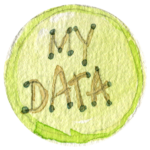1.3 • Open data and innovation •
"In this model of social change, innovators co-create solutions for a wide variety of social problems. These solutions are openly available to other innovators and users, who can then act to further improve and advance them. "
By Javiera Atenas and Carla Bonina
The value of open data is realised through its use. However, capturing attention and driving innovation across the spectrum of data users, intermediaries and consumers is challenging. How to encourage participation in the demand for open data? How to generate and grow the community of data users? This module is aimed at explaining what kind of value can be created with open data, who are the main groups of users of the data and how to plan strategies to encourage both the participation of those groups and the generation of new initiatives with open data.
1.3.1 •The value of open data •

The value of open data lies in its use. This first unit aims to cover the following aspects:
- What kinds of benefits can open data and civic technology generate?
- What examples can be found in the world?
- How are these benefits generated?
- What is the role of participation and collaboration for the generation of value?
In a world with increasing poverty, inequality, environmental degradation and injustice, digital innovation with a social focus appears as a ray of hope to solve such problems. Civic technology is a type of social digital innovation, in which digital technologies are implemented to improve the relationship between citizens and the government in order to include more people in public decision-making, citizen empowerment, or to improve access and delivery of public services. In many cases, in particular, at a regional level, open data is an input for the development of innovations based on civic technology.
Open data opens up new possibilities to generate value, both in the economic, social, environmental, and democratic fields. There are several open data projects that have a civic or social objective that at the same time may be generating economic benefits. While the types of benefits that open data can bring are not necessarily exclusive, we present them separately below for simplicity.
Economic Benefits: On the economic side, as companies, governments and citizens use or reuse open data, new products, processes and business opportunities eme rge. In 2011, a study commissioned by the European Commission estimated that the economic value of opening up and reusing public sector information was approximately € 40 million per year for the European Union alone. On a global scale, McKinsey estimated in 2013 that open data could contribute to the generation of between $ 3 and $ 5 trillion per year in the global economy. Whilst these figures are still speculative, they open up a range of possibilities when it comes to generating economic value. Unit 4 is dedicated to exploring the economic aspect in depth.
rge. In 2011, a study commissioned by the European Commission estimated that the economic value of opening up and reusing public sector information was approximately € 40 million per year for the European Union alone. On a global scale, McKinsey estimated in 2013 that open data could contribute to the generation of between $ 3 and $ 5 trillion per year in the global economy. Whilst these figures are still speculative, they open up a range of possibilities when it comes to generating economic value. Unit 4 is dedicated to exploring the economic aspect in depth.
Social and democratic benefits of civic technology and open data: Equally important, open data is seen as particularly beneficial in increasing transparency, fighting corruption, and promoting social inclusion, but the value of these benefits is much more difficult to assess in monetary terms. This perspective of value has been particularly important in Latin America, where the lack of transparency and accountability, as well as social needs, have been at the centre of the agenda of the open data movement in the region. Concern about transparency and accountability is not, however, a problem exclusively for developing countries. Open data policies in pioneer countries, for example, the UK, were partly the result of a lack of trust in the political system and its accountability.
There are also many cases in which open data is built on the basis of volunteer work, cooperation and civic engagement. There are open data initiatives of collaborative peer production based on the public domain, in which participants collaborate, contribute their time and exchange knowledge and experience to achieve a social or public interest good. A pioneering initiative in the field of geographic location is the Open Street Map, a collaborative project to create a free editable world map. Similar to Wikipedia, Open Street Map is produced by a community of local knowledgeable contributors, who update and maintain data on routes, train stations, cafes and much more around the world, all in an open format. This project has inherent utilitarian value – anyone with a GPS can download and use it for free, and it has proven particularly useful in remote areas. However, this common task has a higher value. As in other cases of open data, Open Street Map can be used as a platform to create other services based on mapping data, such as transport, humanitarian aid or monitoring.
 Participation, collaboration and co-creation with civic technology and open data: Both, civic technology and open data promise a variety of benefits economically as well as socially, politically and democratically. The potential of open data not only at a regional level but also globally is particularly facilitated by greater access and affordability to the Internet, computers and mobile telephony, among other digital technologies. The generation and appropriation of its benefits result from the participation, collaboration or co-creation of services by a diversity of actors, two fundamental pillars in the framework of Open Government.
Participation, collaboration and co-creation with civic technology and open data: Both, civic technology and open data promise a variety of benefits economically as well as socially, politically and democratically. The potential of open data not only at a regional level but also globally is particularly facilitated by greater access and affordability to the Internet, computers and mobile telephony, among other digital technologies. The generation and appropriation of its benefits result from the participation, collaboration or co-creation of services by a diversity of actors, two fundamental pillars in the framework of Open Government.
The concepts of participation, collaboration and co-creation are undoubtedly related. For, public or civic participation can lead to cases of collaboration or co-creation of services. For example, an open session between the government, civil society organisations and citizens can give ideas to prioritise a series of data to be opened up, which, over time, can also lead to concrete initiatives between a civil society organisation and the government. In other cases, an open session can be a good input to modernise a government service, which is not necessarily co-created in collaboration with an outsider.
In simple terms, we understand co-creation as pertaining to those processes or activities where at least two actors (e.g, public, private, governmental or civic) collaborate in the realisation of a project to achieve a certain result. In other words, it refers to where more than one part is required for value creation.
1.3.2 •Open data for innovation•
Despite expectations, realising the potential benefits of open data is complex. Part of the problem governments face is the need to cultivate an ecosystem of reusers. On the demand side, the authority responsible for the open data platform needs to cultivate a base of independent reusers, either to contribute new services or applications based on open data, as well as end-users who consume these services. A key challenge that authorities of open data platforms face is governance, that is, how to attract and keep active those who have the capacity to generate new services and applications for the economy. This unit introduces a simple model to foster innovation with open data, based on rules and tools.
The logic of the contribution of open data to the generation of economic benefits can be summarised as pertaining to two types as follows.
- Direct benefits: include the generation of income from new products or services, the creation of jobs and/or the reduction of economic costs. An example would be a new company that earns its revenue from visualising or transforming open data for the financial industry.
- Indirect benefits: the reduction of waiting times for users of applications with open data, the increase in search options for decision making, the increase in the efficiency of the public sector and the growth of related industries, among others. An example of indirect benefits would be the reduction of hours lost in traffic by the inhabitants of a region, based on the use of open data regarding transport.

To cultivate an ecosystem of entrepreneurs and innovators around open data, the innovation platform approach is useful. It is key to having tools for fostering innovation with open data and working with a series of priorities or public problems to be solved. In order to cultivate the demand of entrepreneurs and innovators with open data, among the various social tools that can be used, it is possible to distinguish two types: i) information and software, and ii) social.
- Information tools and software: These are the most obvious resources on an open data platform, and comprise data sets as well as other information tools, such as manuals and related videos for use. They also include software tools, such as APIs and web portals, that allow developers and innovators to access data sets programmatically.
- Social tools: These tools complement those of information and software, being those that involve the participation of demand, through the deployment of events, financing or other types of incentives, of which three stand out.

-
- Hackathons: These are marathons of ideas, design and software prototyping, bringing together specialists, technical programmers, designers and entrepreneurs to work collaboratively. The sessions usually last between 24 and 48 hours, having specific challenges to guide the event, and in many cases they also have parallel workshops for capacity building. Hackathons are often one of the first strategies to promote the reuse of open data — and at the same time they create or strengthen the community, especially of entrepreneurs.
- App challenges: These competitions are similar to hackathons, but typically highlight the competitive element with prizes or recognition awarded by a panel of experts or judges, and can last longer than a hackathon. There are competition rules, which specify the products or applications considered “eligible” for the awards.
- Incubation processes and funds: These tools are used to incubate well-formulated projects that have the potential for the development of an application, product or service based on open data. For this purpose, seed financing is offered to build and apply scalable models as these programmes may be more successful in generating impact with open data. In reality, there are very few examples in Latin America regarding such programmes.
To ensure that Open Data properly benefits the society, it is key to promote more channels of collaboration between citizens, business and government. Opening up data without a community using it will not generate value per se. It is common to find that public officials report difficulties in prioritising those data that may be of greatest interest to the groups that make up the demand for data. Facilitating spaces for collaboration between the government and these actors is a strategy that has proven to be effective when creating and promoting the use of open data. Also, it is important to invest in understanding open data business models. Whilst technology entrepreneurs, startups and private sector companies are very relevant actors in the open data ecosystem, they are still disconnected or even absent in open data discussions. This is because it is not easy to generate business with open resources and hence, emphasis also needs to be placed on acquiring better understanding as to what kinds of business models are viable or sustainable in the ecosystem.